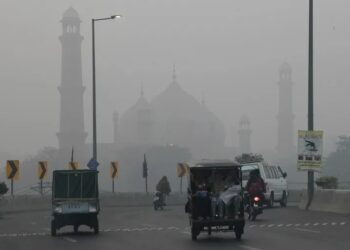Written By : Abdul Basit Alvi
National security is essential to a nation’s sovereignty and stability, encompassing a wide range of efforts to protect citizens, institutions, and values from both internal and external threats. As global challenges evolve, national security has expanded beyond traditional military defense to encompass multiple dimensions.
Though often viewed through the lens of military defense, national security covers far more ground. It involves safeguarding a nation’s territory, economy, infrastructure, and social cohesion. National security is commonly divided into several key areas. The traditional aspect focuses on defending against external military threats, including the maintenance of strong, well-equipped armed forces to protect borders and deter aggression. Military security remains vital not only for conventional warfare but also for peacekeeping, deterrence, and the preservation of strategic alliances.
In the digital age, cybersecurity has emerged as one of the most crucial components of national security. Cyberattacks by state actors, terrorist organizations, and criminal groups can damage economies, disrupt essential services, and compromise defense systems. Cybersecurity aims to protect government networks, private sector infrastructure, and personal data from malicious actors.
Economic security plays a fundamental role in a nation’s overall stability. It involves ensuring the country has the resources to support defense, public services, and growth, while also addressing threats like economic espionage, managing trade relations, and securing energy independence and financial stability.
Political security safeguards a nation’s political institutions, upholds the rule of law, and defends democratic processes. It also addresses threats like political instability, corruption, and the rise of authoritarianism, all of which can undermine national unity and governance.
Environmental factors such as climate change, natural disasters, and resource shortages are increasingly viewed as national security concerns. Governments must plan to mitigate the impact of environmental crises, which can lead to mass migration, conflict over resources, and other destabilizing effects.
Social security focuses on protecting citizens from societal threats, including crime, terrorism, and extremism. Ensuring a stable society where citizens have access to education, healthcare, and employment is key to long-term national security.
While traditional military threats remain relevant, the evolving nature of warfare and the globalized world have introduced new challenges. Cyber warfare has revolutionized the landscape of national security, with nation-states and non-state actors using hacking, misinformation, and other digital tactics to disrupt governments, steal intellectual property, and manipulate public opinion. The most devastating conflicts of the 21st century could occur in cyberspace.
Terrorism, both domestic and international, remains a significant threat to national security. Groups like ISIS and Al-Qaeda, as well as terrorists and radicalized individuals, continue to pose risks. The global nature of terrorism complicates efforts to combat it, as these groups often coordinate across borders and operate through complex networks.
The COVID-19 pandemic highlighted how biological threats can disrupt national security in ways beyond traditional military conflict. Pandemics can overwhelm healthcare systems, destabilize economies, and trigger social unrest. Biological warfare also presents a potential risk, with weaponized pathogens used by both state and non-state actors. Climate change is increasingly recognized as a national security threat as it exacerbates environmental crises, creates competition over resources, and fuels conflicts. Rising sea levels, extreme weather events, and droughts can intensify conflicts, trigger refugee crises, and destabilize governments. The increasing scarcity of essential resources like water and arable land is likely to fuel violent disputes, particularly in vulnerable regions. As global power dynamics evolve, nations face heightened competition from emerging powers. Rivalries between major players such as the U.S., China, and Russia can lead to proxy wars, arms races, and economic tensions. These geopolitical shifts undermine the stability of international institutions and pose direct threats to national security.
While national security has traditionally focused on military and defense issues, the role of youth in safeguarding and enhancing national security is becoming increasingly vital. As digital natives, social influencers, and future leaders, young people hold the potential to make innovative and transformative contributions toward ensuring the safety and stability of their nations. One of the most direct ways youth contribute to national security is by serving in the armed forces. Many nations have long viewed military service as a key component of both youth development and national defense. For many young people, joining the military is not only seen as a patriotic duty but also as a career choice that offers training, discipline, and a sense of purpose. Young people bring vital energy, adaptability, and fresh perspectives to military service. Given the evolving nature of warfare—particularly in areas like cyber defense, space security, and unconventional tactics—modern armies require individuals who are technologically savvy, agile, and equipped to handle contemporary challenges. Youth can take on specialized roles in fields such as cyber defense, intelligence, and information warfare, making them indispensable in addressing emerging threats.
Moreover, youth play a critical role in maintaining the operational effectiveness of military forces through recruitment, training, and leadership development. Their participation not only ensures military readiness but also ensures that the armed forces reflect the diversity and evolving needs of the populations they protect. In the digital era, cybersecurity has become a cornerstone of national security. As cyber threats grow more sophisticated, nations increasingly depend on young people with technical expertise and digital fluency to safeguard critical infrastructure, counter cyberattacks, and protect national interests in cyberspace. Youth, especially those in fields like computer science, engineering, and digital technology, are essential in the battle against cybercrime and cyberwarfare. Many young individuals already contribute to national security through roles in cybersecurity agencies, tech startups, and innovation hubs. Their ability to think creatively and rapidly adapt to new technologies makes them key players in tackling emerging cybersecurity challenges. Additionally, their familiarity with digital tools allows them to identify system vulnerabilities that may be overlooked by older generations.
As threats like data breaches, and disinformation campaigns continue to rise, the role of youth in defending cyberspace has become ever more critical. Innovation is central to maintaining national security, and youth are driving technological advancements at the forefront. From drones to artificial intelligence (AI), robotics, and advanced weaponry, young innovators in science, technology, engineering, and mathematics (STEM) are developing cutting-edge technologies that enhance military capabilities and defense strategies. Young scientists, engineers, and inventors play a pivotal role in creating solutions that improve the army’s tactical advantage, boost surveillance, and enhance protection for both soldiers and civilians. Areas such as AI and machine learning—used in predictive analytics, autonomous vehicles, and real-time battlefield intelligence—are some of the key fields where youth have already made significant contributions. Additionally, youth-led initiatives in sustainable defense technologies—such as energy-efficient military systems, renewable energy for defense installations, and eco-friendly weaponry—are shaping a more sustainable approach to security.
Beyond direct involvement in defense and technology, youth also play an essential role in supporting national security by advocating for policies and strategies that promote peace, stability, and resilience. Many young people are actively involved in advocacy efforts related to national security, including lobbying for stronger cybersecurity laws, supporting conflict resolution initiatives, and promoting social cohesion to prevent radicalization. Youth-led organizations and movements play a key role in raising awareness about national security issues, particularly those concerning terrorism, extremism, and conflict. These groups work to facilitate dialogue, increase public understanding, and provide platforms for young people to engage in discussions about security and defense within their communities. Additionally, young people contribute to the broader security landscape through volunteer work, such as assisting in disaster response, supporting refugees, and participating in peacebuilding efforts. By focusing on issues such as climate change, public health, and poverty, youth can address the underlying causes of instability and conflict. A key factor in preparing young people to make meaningful contributions to national security is education. Equipping youth with the knowledge, skills, and critical thinking abilities to understand the complexities of contemporary security threats is vital for ensuring they are prepared to tackle future challenges. Education in national security can take many forms, such as formal military training, cybersecurity courses, peace studies, and public policy programs. By integrating national security education into school curricula, governments can help young people recognize their role in safeguarding national security—whether through military service, policymaking, or other avenues. Programs that emphasize leadership, resilience, and conflict resolution further empower youth to become effective leaders and active participants in securing a stable future. Additionally, engaging young people in simulation exercises, war games, and scenario-based learning can help them develop critical thinking skills and the ability to respond to real-world security challenges.
National security in the 21st century is increasingly shaped by global issues like climate change, terrorism, pandemics, and regional conflicts. In this interconnected world, young people are key to bridging divides between nations and finding solutions to transnational security challenges. Youth-driven diplomacy and international cooperation are essential for fostering peaceful relations between countries. As globalization continues, young diplomats, peacebuilders, and human rights advocates are becoming more involved in dialogue and negotiations to address global security concerns. Young people, particularly through organizations like the United Nations Youth Assembly, play a significant role in advocating for peaceful conflict resolution, disarmament, and international cooperation. Their involvement in shaping global security and defense policies helps ensure that future strategies reflect the perspectives and needs of younger generations.
At the core of national security is the military, particularly the army, which plays an irreplaceable role in protecting the nation’s sovereignty and maintaining peace both within and beyond its borders. The army’s primary responsibility is to defend the nation’s territorial integrity. During times of war or conflict, its chief duty is to secure the nation’s borders against external threats, ensuring that its land, airspace, and waters are protected from invasion or occupation. The army defends national territory through a combination of strategic defense planning, combat operations, and advanced military technology. Beyond conventional warfare, the army also plays a crucial role in preventing territorial disputes and maintaining peace in regions prone to conflict. By maintaining a strong and capable military, the army acts as a deterrent to potential adversaries, reducing the likelihood of hostile actions. The mere presence of a well-equipped and trained military can discourage aggressors from launching attacks or engaging in provocative actions. While the traditional focus of the army has been defending against foreign threats, modern security challenges have required the military to adapt to internal threats, such as terrorism, insurgency, and civil unrest. Terrorist groups, often operating covertly across borders, pose a significant danger to national safety. In such situations, the army frequently collaborates with other law enforcement agencies to address and neutralize threats, helping to restore peace and stability. The military plays a key role in counterterrorism operations, deploying specialized forces and intelligence resources to dismantle terrorist networks and thwart potential attacks. Additionally, the army works to prevent the radicalization of local populations and safeguard civilians in conflict areas. When domestic unrest arises—whether through violent protests or organized insurgencies—the army may be called upon to support local police forces in maintaining order and securing critical infrastructure. Beyond its primary role in defense, the army also plays a vital part in national security during natural disasters, pandemics, and humanitarian crises. Events such as earthquakes, floods, hurricanes, and health emergencies like pandemics can severely disrupt national stability and daily life. The army, with its resources, organization, and trained personnel, is often the first responder when disaster strikes. Military units are mobilized to provide emergency assistance, deliver aid to affected regions, carry out search-and-rescue operations, and help rebuild damaged infrastructure. Their ability to operate in difficult environments and under challenging conditions makes them crucial in the aftermath of major crises. The army frequently collaborates with international organizations, NGOs, and local governments to provide humanitarian relief to affected populations. This aspect of the military’s role is increasingly recognized as essential to national security, as a swift and effective response to crises helps maintain societal stability and prevent further conflict or harm.
Pakistan, a country that has faced numerous challenges over the years—ranging from geopolitical tensions and terrorism to natural disasters and economic instability—has always relied on the dedication and resilience of its citizens to protect its sovereignty and maintain stability. Among these citizens, the youth have played a pivotal role in strengthening national security. As the country navigates an evolving security landscape, young Pakistanis are stepping up in significant ways, contributing both on the frontlines and behind the scenes to safeguard the nation.
One of the most direct and impactful ways in which Pakistani youth contribute to national security is through service in the armed forces. Each year, thousands of young men and women enlist in the Pakistan Army, Navy, and Air Force, driven by a strong sense of duty and patriotism. The Pakistan Army, in particular, has long depended on the bravery and professionalism of its young soldiers to defend the nation’s borders and address both external and internal security threats. A notable example of youth contribution to Pakistan’s defense is their active participation in the wars of 1965 and 1971, as well as in more recent engagements against insurgencies and terrorism. In these conflicts, young soldiers exhibited exceptional courage and resilience in the face of adversity.
In more recent years, young recruits have played a critical role in Pakistan’s counterterrorism efforts, particularly in Operation Zarb-e-Azb (2014) and Operation Radd-ul-Fasaad (2017). These operations, aimed at eliminating terrorist networks and stabilizing the country’s borders, saw young soldiers make significant contributions to defeating militancy and ensuring the safety of Pakistan’s civilian population. Institutions like the Pakistan Military Academy (PMA) continue to attract young talent, training them to become skilled leaders and warriors. These programs instill values of patriotism, discipline, and commitment, ensuring a steady stream of dedicated individuals ready to serve the nation.
Beyond military service, many young Pakistanis are also making vital contributions to national security through law enforcement and intelligence agencies. In the wake of the 9/11 attacks, Pakistan became a key player in the global fight against terrorism, facing numerous internal security challenges posed by terrorist groups, insurgents, and extremist factions. Young Pakistanis have not only volunteered to serve in security agencies but have risen to leadership roles in organizations such as the Pakistan Rangers, Frontier Corps, Anti-Terrorism Force (ATF), and the Inter-Services Intelligence (ISI).
A noteworthy example of youth involvement in counterterrorism efforts is the role of the Pakistan Rangers in Karachi and other volatile regions, where young officers have worked tirelessly to combat urban terrorism, protect civilians, and maintain law and order. During the Karachi Operation, launched in 2013 to address terrorism, extremism, and organized crime, young law enforcement officers played critical roles in reclaiming the city from militant groups and ensuring long-term peace. Additionally, young officers in the Counter-Terrorism Department (CTD) have been instrumental in intelligence gathering, counterinsurgency operations, and community outreach to counter extremist ideologies, further strengthening Pakistan’s security apparatus. Youth-led organizations in Pakistan, such as the Shaheen Force (volunteer national guard units), have emerged as key contributors to enhancing domestic security by involving young people in local defense efforts, particularly in border regions and areas facing insurgent threats. In the 21st century, national security extends beyond physical borders. The digital era has introduced new security challenges, and Pakistani youth have proven essential in protecting the nation’s digital infrastructure. With an increase in cyberattacks from both state and non-state actors targeting everything from government systems to critical industries and institutions, youth have become indispensable in defending Pakistan’s cyberspace. One notable example of youth involvement in cybersecurity is the Pakistan Cyber Emergency Response Team (PakCERT), which works diligently to protect the country’s digital assets from evolving threats. Many young cybersecurity experts, often with backgrounds in computer science and engineering, have taken on leadership roles in protecting Pakistan’s critical infrastructure from cyber threats. These young professionals are collaborating with government agencies, private sector companies, and educational institutions to strengthen the nation’s cyber resilience. Additionally, youth-led initiatives, such as Cyber Security Awareness Programs in universities and high schools, are educating young people about the risks of cyber threats and how to defend against them. Ethical hackers and cybersecurity enthusiasts are becoming vital contributors by identifying vulnerabilities in systems and helping protect Pakistan from cyber espionage, hacking, and data breaches. The involvement of youth in cybersecurity also extends to global competitions like Capture the Flag (CTF), where Pakistan’s young tech experts have earned recognition for their skills in ethical hacking and digital defense. These efforts are crucial as Pakistan modernizes its military and national security infrastructure, increasingly relying on technological solutions to address new and emerging threats.
Beyond traditional roles in the military and intelligence sectors, many young Pakistanis are contributing to national security by advocating for peace, social stability, and conflict resolution. Organizations such as Peace Foundation Pakistan and the Youth Parliament of Pakistan have played a central role in fostering dialogue and promoting national unity, particularly in regions impacted by terrorism, sectarian violence, and ethnic divisions. Youth-led programs focused on countering violent extremism have proven essential in communities vulnerable to radicalization. Young activists and social workers, often collaborating with law enforcement and community leaders, have facilitated interfaith and interethnic dialogue to resolve local conflicts and promote peace. A notable example is the Youth Against Terrorism (YAT) movement, which brings together young Pakistani students, activists, and professionals to raise awareness about the dangers of extremism and the importance of social harmony. Through awareness campaigns, workshops, and public discussions, this initiative empowers youth to become agents of change in their communities, diminishing the appeal of militant ideologies.
Pakistani youth also contribute significantly to national security through volunteerism, particularly in disaster response, humanitarian aid, and community resilience efforts. Whether responding to natural disasters such as floods and earthquakes, or engaging in local security initiatives, young volunteers are often on the frontlines of national stability. For instance, during the 2010 floods, young volunteers played a crucial role in providing immediate relief, distributing food, offering medical assistance, and helping affected communities rebuild. During the COVID-19 pandemic, young volunteers were vital in spreading information, supporting frontline workers, and ensuring the safety and well-being of vulnerable populations. This spirit of volunteerism is also evident in youth-led organizations like The Citizens Foundation (TCF) and Indus Hospital, where young people are making significant contributions to enhancing public health, education, and social infrastructure—key pillars of national stability and security.
Pakistani youth and the Pakistan Army stand united, working in harmony for the nation’s security. The bond between these two vital components of national defense is strong and unbreakable. Any malicious attempts by our enemies to sow divisions between our youth and armed forces will ultimately fail, as the entire nation continues to support and collaborate with our courageous military to safeguard the security of Pakistan.

























